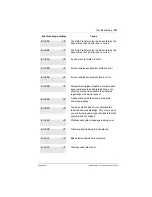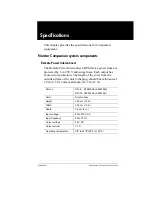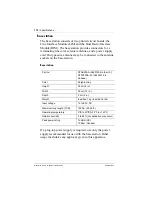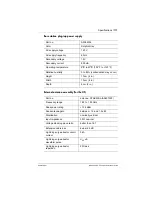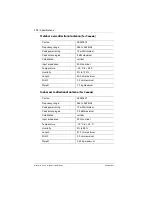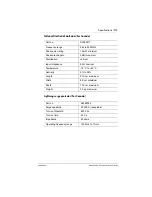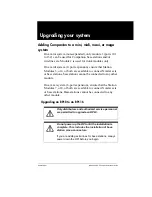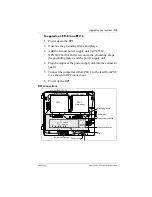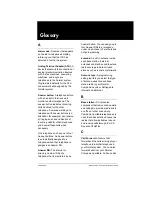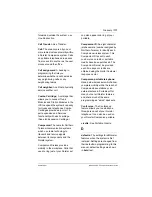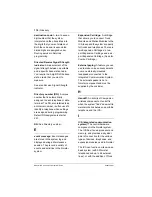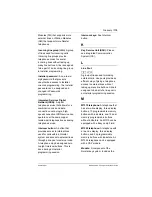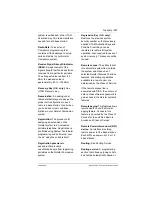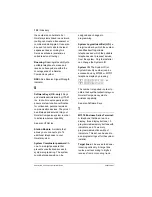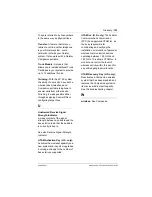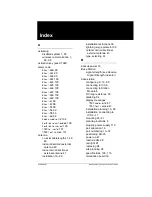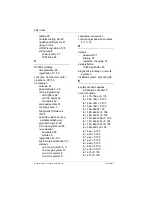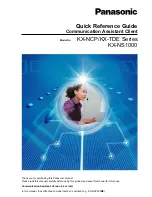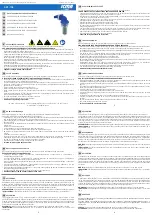
Glossary / 121
P0941568 01
Modular ICS 5.0 Companion Installer Guide
system is embedded in the UTAM
Activation Key. Two radio credits are
needed for each base station.
Radio Data: The section of
Companion programming that
contains all the headings to set up
cells and radios in your Norstar
Companion system.
Receive Signal Strength Indicator
(RSSI): A measurement of the
signal strength that the base station
receives from a particular portable.
The strongest value is about -35
dBm; the weakest value is
approximately -94 to -100 dBm.
Recovery Key (U.S. only): See
UTAM Recovery Key.
Reevaluation: A heading under
radio data that lets you re-assign the
proper cell configuration to each
radio in a base station. Use it when
you’ve added or removed base
stations in your Norstar Companion
system.
Registration: The procedure for
assigning an extension on the
Norstar system to a Companion
portable telephone. Registration is
controlled using System Coordinator
programming and performed “over
the air” using the portable itself.
Registration password: a
password that prevents
unauthorized users from registering
portables on the Norstar Companion
system.
Regression Key (U.S. only):
Restores the previous system
security number so that previously
applied UTAM Activation Keys and
Portable Credit Keys can be
reentered to restore full system
operation. Also required in cases of
system recovery. This key cannot be
reused.
Remote access: The ability to dial
into a Norstar system from outside
the system and make use of
selected Norstar features. The lines,
features, and dialing capabilities
available to a remote user are
determined by the Class of Service.
If the remote access line is
answered with DISA, the user must
enter a Class of Service password to
gain access to the Norstar system's
features.
Remote paging: This feature allows
remote users to use the Norstar
paging feature. Access to this
feature is governed by the Class of
Service for the call. See Remote
Access and Class of Service.
Remote Power Interconnect (RPI)
device: An interface providing
remote power for the base stations.
Each RPI can power up to 8 or 16
base stations.
Routing: See Routing Service.
Routing service: A programming
section that allows outgoing calls to
be directed automatically based on

